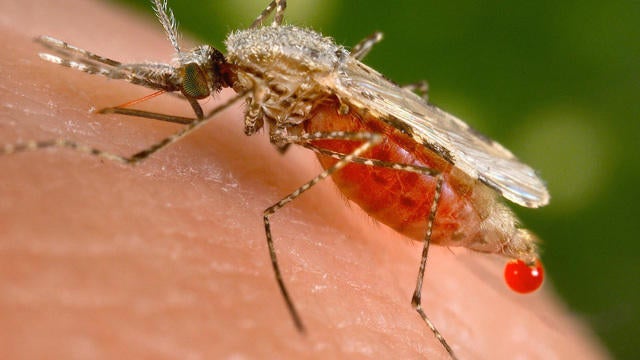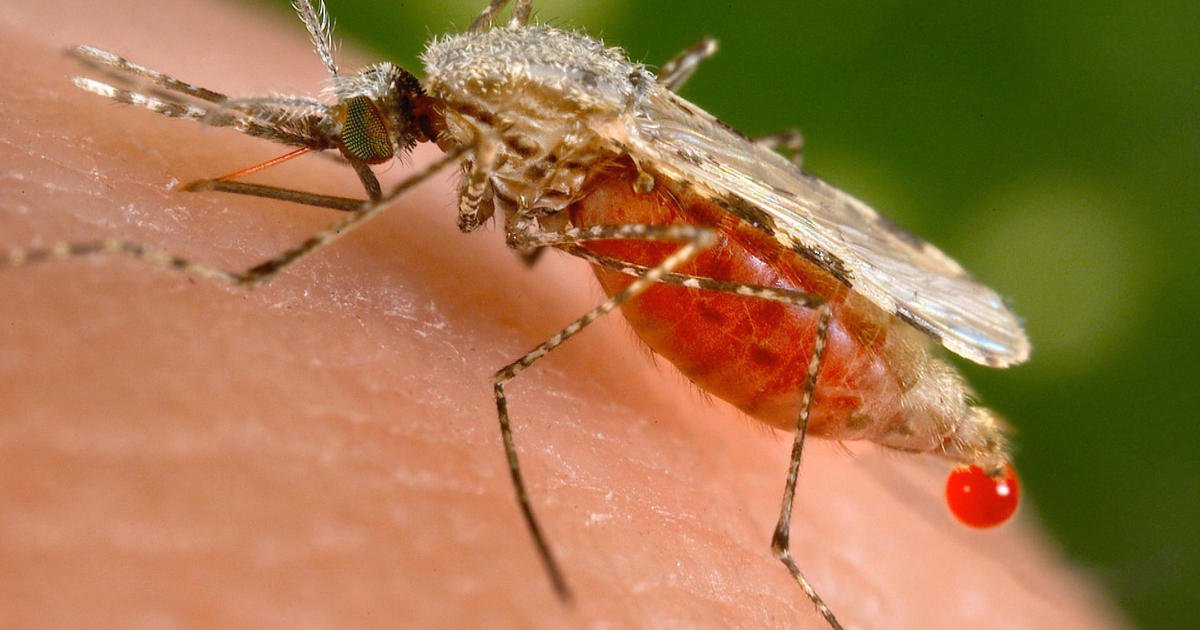Mosquitoes have killed an estimated 52 billion people throughout history. The impact of mosquito-borne diseases on human history is significant, leading to widespread mortality and suffering.
From the ancient civilizations to the modern era, the deadly consequences of mosquito-borne illnesses have shaped the course of human events. Malaria, dengue fever, and other diseases transmitted by mosquitoes have had profound effects on populations, economies, and even the outcomes of wars.
Understanding the historical toll of mosquito-related deaths provides insight into the ongoing global efforts to combat these diseases and mitigate their impact. By examining the devastating impact of mosquitoes on human history, we can appreciate the urgency of ongoing public health initiatives to prevent and control mosquito-borne diseases.
The Lethal Legacy Of Mosquitoes
Mosquitoes have left a lethal legacy throughout history, claiming more lives than all wars combined. This tiny but deadly insect has been responsible for the deaths of billions of humans, making it the world’s deadliest animal.
Mosquitoes have plagued humanity for centuries, leaving behind a trail of death and devastation. From spreading diseases like malaria and dengue fever to causing widespread suffering, these tiny insects have had a huge impact on human history.
The Deadliest Animal On The Planet
Mosquitoes, often underestimated, hold the title of the deadliest animal on Earth. Responsible for more human deaths than any other creature, their lethal bites transmit deadly diseases, claiming millions of lives annually.
Mosquitoes Vs. Human Warfare: A Grim Comparison
In a grim comparison, mosquitoes have killed more humans than all the wars in history combined. The toll of mosquito-borne illnesses far surpasses the casualties of battles and conflicts, highlighting the deadly impact of these tiny but deadly insects.
Mosquito-borne Diseases And Their Impact
Mosquitoes are not just pesky insects; they pose a significant threat to human health due to their ability to transmit deadly diseases. The impact of mosquito-borne diseases throughout history is staggering, with millions of lives lost to these relentless vectors. Let’s explore the devastating effects of these diseases and the toll they have taken on human populations.
Malaria: The Ancient Scourge
Malaria has been a longstanding scourge throughout human history, causing widespread suffering and death. The disease, transmitted by the Anopheles mosquito, has plagued civilizations for centuries, with estimates suggesting that it has been responsible for the deaths of billions of people over time. The impact of malaria on human populations has been profound, leading to economic hardship, societal disruption, and immeasurable human suffering.
Other Deadly Diseases Spread By Mosquitoes
- Dengue Fever: Transmitted by Aedes mosquitoes, dengue fever has emerged as a major public health concern in tropical and subtropical regions, causing severe flu-like symptoms and, in some cases, leading to life-threatening complications.
- Zika Virus: The Aedes mosquito also transmits the Zika virus, which can cause birth defects and neurological complications, posing a significant threat to pregnant women and their unborn children.
- Yellow Fever: This viral disease, transmitted by infected Aedes or Haemagogus mosquitoes, has ravaged populations throughout history, leading to devastating outbreaks and high mortality rates.
- West Nile Virus: Spread by infected Culex mosquitoes, the West Nile virus can cause severe neurological disease and has led to numerous outbreaks with significant morbidity and mortality.
These are just a few examples of the many deadly diseases spread by mosquitoes, underscoring the immense impact of these tiny yet formidable creatures on human health and well-being.
Historical Death Toll: Estimating The Numbers
Estimating the historical death toll from mosquito-borne diseases reveals staggering numbers throughout history. Mosquitoes have been responsible for more human deaths than all wars combined, making them one of the deadliest creatures on Earth. The impact of these tiny pests on human populations has been significant and enduring.
Mosquitoes are known to be one of the deadliest animals in the world due to the diseases they spread, such as malaria, dengue fever, and Zika virus. But how many people have mosquitoes actually killed throughout history?
Challenges In Tracking Historical Data
Tracking the historical death toll caused by mosquitoes is a challenging task. This is because reliable records of mosquito-related deaths were not maintained in the past. Additionally, many deaths were attributed to other causes, making it difficult to determine the actual number of deaths caused by mosquitoes.
Scientific Estimates Of Mosquito-related Deaths
Despite the challenges in tracking historical data, scientists have attempted to estimate the number of deaths caused by mosquitoes. According to the World Health Organization, mosquitoes are responsible for the deaths of over 400,000 people each year due to malaria alone.
When it comes to estimating the historical death toll, some experts believe that mosquitoes have killed more humans than all the wars in history combined. However, this claim is difficult to verify as reliable records of historical deaths caused by mosquitoes are lacking.
Nevertheless, it is clear that mosquitoes have had a significant impact on human history. Malaria, one of the deadliest diseases spread by mosquitoes, has been responsible for the deaths of millions of people throughout history.
In conclusion, while it is difficult to determine the exact number of people killed by mosquitoes throughout history, it is clear that these tiny insects have had a significant impact on human health and history.
Geographical Variance In Mosquito-related Deaths
Mosquito-related deaths vary geographically, with a historical toll that surpasses all wars combined. Mosquito-borne diseases, such as malaria, have killed hundreds of millions of people throughout history. The impact of eradicating mosquitoes on the environment remains uncertain, with potential consequences for animal food sources and plant pollination.
Regions Most Affected By Mosquitoes
Mosquito-related deaths have historically varied significantly across different regions of the world. The impact of mosquito-borne diseases has been particularly devastating in tropical and subtropical areas, where conducive environmental conditions have facilitated the proliferation of mosquitoes and the spread of diseases such as malaria, dengue fever, and Zika virus.
Regions such as sub-Saharan Africa, Southeast Asia, and parts of the Americas have borne the brunt of mosquito-related fatalities, with high incidences of malaria and other vector-borne diseases leading to substantial mortality rates.
Mosquito Deaths In Modern Times: Are We Safer?
In recent times, advancements in public health, medicine, and vector control have contributed to a significant reduction in mosquito-related deaths in many parts of the world. Improved access to healthcare, widespread use of insecticide-treated bed nets, and the development of effective antimalarial drugs have played crucial roles in lowering mortality rates attributed to mosquito-borne illnesses.
While progress has been made, it’s essential to recognize that the threat of mosquito-borne diseases persists, and new challenges, such as the emergence of insecticide-resistant mosquitoes and climate change impacts, continue to pose risks to global populations.
Technological And Medical Advances
Throughout history, mosquitoes have been responsible for more human deaths than all wars combined. The diseases they transmit, such as malaria and dengue fever, have claimed millions of lives. Thanks to technological and medical advances, efforts to control and prevent these mosquito-borne illnesses have intensified, saving countless lives worldwide.
The Role Of Bed Nets And Repellents
In the fight against mosquito-borne diseases, bed nets and repellents play a crucial role in preventing mosquito bites. Bed nets act as physical barriers, protecting individuals while they sleep, while repellents provide added protection when applied to the skin or clothing.
These simple yet effective tools have significantly reduced the risk of mosquito-borne illnesses, especially in regions where access to advanced medical care may be limited.
Breakthroughs In Vaccine Development
Vaccine development has been a game-changer in the battle against mosquito-borne diseases. Breakthroughs in vaccine research have led to the creation of vaccines that offer protection against diseases such as malaria, dengue fever, and Zika virus.
These vaccines have the potential to save countless lives and reduce the burden of these devastating illnesses on communities around the world.
/cdn.vox-cdn.com/uploads/chorus_asset/file/18968476/mosquito_mankind.jpg)
Credit: www.vox.com
Environmental Impact Of Mosquitoes
Mosquitoes have been responsible for more human deaths than all wars combined throughout history. Malaria, spread by mosquitoes, has claimed millions of lives, highlighting the significant environmental impact of these tiny yet deadly insects.
The Ecological Role Of Mosquitoes
Mosquitoes are known to be the deadliest animals on Earth, with their bites causing millions of deaths every year. However, while we often view them as nothing but pests, mosquitoes actually play an important ecological role.
Consequences Of Eradicating Mosquitoes
If we were to eradicate mosquitoes entirely, it would have significant consequences on the environment. Mosquitoes serve as a food source for a variety of animals, including birds, fish, and bats. If they were to disappear, it could have a ripple effect on the food chain and disrupt entire ecosystems. Additionally, mosquitoes play a role in pollination, with some species feeding on nectar and transferring pollen from one plant to another. At the same time, while mosquitoes play a role in the environment, their impact on human health cannot be ignored. They are responsible for spreading diseases such as malaria, dengue fever, and Zika virus, which have caused significant loss of life throughout history. In some areas, mosquito-borne illnesses are a major public health concern, and efforts to control mosquito populations are critical to preventing outbreaks. In conclusion, while mosquitoes may be a nuisance to humans, they are an important part of the ecosystem. Eradicating them entirely could have significant consequences on the environment, but it is also important to address the health risks that they pose to humans. Balancing these competing interests is a complex challenge that requires ongoing research and collaboration between scientists, public health officials, and policymakers.
Global Health Initiatives And Mosquito Control
Global Health Initiatives and Mosquito Control have been crucial in addressing the significant impact of mosquitoes on public health. Efforts by the World Health Organization, alongside community-based strategies, have played a pivotal role in combating mosquito-borne diseases.
Efforts By The World Health Organization
The World Health Organization (WHO) has spearheaded numerous initiatives to combat mosquito-borne diseases. Through research, advocacy, and support for affected regions, WHO has been instrumental in developing and implementing effective control measures.
Community-based Strategies
Community-based strategies have proven to be effective in controlling mosquito populations and reducing the spread of diseases. Engaging local communities in surveillance, education, and the implementation of preventive measures has been essential in mitigating the impact of mosquitoes on public health.

Credit: www.vox.com
The Future Of Humanity’s Battle Against Mosquitoes
Mosquitoes have been a deadly scourge throughout history, causing immense suffering and claiming countless lives. However, advancements in technology and a deeper understanding of mosquito-borne diseases offer hope for a future where humanity can effectively combat these lethal pests.
Innovations In Mosquito Control
Innovative solutions such as genetically modified mosquitoes and targeted insecticide application are revolutionizing mosquito control efforts.
Education And Prevention: Key To Reducing Mortality
Educating communities about prevention methods and promoting practices like eliminating standing water can significantly reduce mosquito-borne disease transmission.

Credit: www.cbsnews.com
Frequently Asked Questions
How Many People Have Mosquitoes Killed?
Mosquitoes have killed more humans than all wars in history, with estimates in billions.
Have Mosquitoes Killed More Humans Than All The Wars In History?
Mosquitoes have killed more humans throughout history than all wars combined.
How Many People Has Malaria Killed Throughout History?
Malaria has killed several hundred million people throughout history, and continues to claim hundreds of thousands of lives annually.
Conclusion
Mosquitoes have been responsible for countless deaths throughout history due to diseases like malaria. Understanding their impact is crucial for global health and disease prevention efforts. By acknowledging their threat, we can work towards minimizing the harm caused by these tiny yet deadly insects.
Related posts:

I’m MD Tanvir, and I bring years of expertise gained from working closely with pest control companies to the forefront. My journey in the industry has inspired me to launch Bug Battler, a platform aimed at equipping people with the know-how to combat pests autonomously. Through Bug Battler, I aim to empower individuals with practical insights to tackle pest infestations effectively.

